Executive Committee
2025–2026
| President | Christopher A. Reilly | |
| Vice President | Lisa Miller | |
| Vice President-Elect | Patricia Silveyra | |
| Secretary | Elizabeth Corteselli | |
| Treasurer | Pooja Singh | |
| Past President | Laura Van Winkle | |
| Councilors | Salik Hussain | |
| Emma Karey | ||
| Junior Councilors | Colette Miller | |
| Alexandra Noël | ||
| Postdoctoral Representative | Eva Vitucci | |
| Student Representative | Rachel Sun |
To email the Inhalation and Respiratory Specialty Section Leadership, please send an email to SOTHQ@toxicology.org.
Committee Member Bios
Christopher A. Reilly, President
 |
Dr. Christopher A. Reilly is a Professor in the Department of Pharmacology and Toxicology at the University of Utah College of Pharmacy and Director of the Center for Human Toxicology. Dr. Reilly also holds adjunct appointments in the Departments of Anesthesiology and Pediatrics (Clinical Pharmacology division) in the University of Utah School of Medicine. Dr. Reilly received a BS in Biology from the University of Utah in 1994 and a PhD in Toxicology from Utah State University in 1999: studying mechanisms of free radical toxicity and iron metabolism with Dr. Steven D. Aust. Dr. Reilly obtained postdoctoral training in lung toxicology and drug metabolism in the laboratory of Dr. Garold S. Yost and the Center for Human Toxicology from 1999-2001 where he received the SOT Colgate-Palmolive award in In Vitro and Alternative Methods. Dr. Reilly’s research program is focused on understanding the health effects of particulate air pollution, as mediated by transient receptor potential (TRP) cation channels, with particular interest in linking exposure with specific mechanisms and asthma in children. He is also broadly interested in xenobiotic metabolism by P450 enzymes (both in the context of pro-toxicant bio-activation), precision pharmacotherapy based on ADME/PK principals for managing asthma and other diseases, and drug discovery and development in the areas of chronic pain, glaucoma, and respiratory diseases. Dr. Reilly’s group has also been involved in developing inhalation-based medications for anesthesia. Dr. Reilly has published 90 peer-reviewed articles and has contributed approximately 20 review articles and book chapters over his career. Dr. Reilly has served as an ad hoc reviewer for the SIEE study section and the NIAID panel for Asthma and Allergic Disease Cooperative Research Centers and is a past member of the NIEHS Environmental Health Sciences Review Committee, which reviews P30 and T32 applications. Dr. Reilly has served SOT at multiple levels, including as: Vice President-Elect, Vice President, President, and Past President of the Mountain West Regional Chapter and Molecular and Systems Biology Specialty Section; Secretary-Treasurer of Mechanisms Specialty Section; member and Chair of the Continuing Education Committee; member of the Scientific Program and Contemporary Concepts Committees; and Councilor for Inhalation and Respiratory Specialty Section. He is currently the Vice President of Inhalation and Respiratory Specialty Section and a Fellow of the Academy of Toxicological Sciences (ATS).
Lisa A. Miller, Vice President
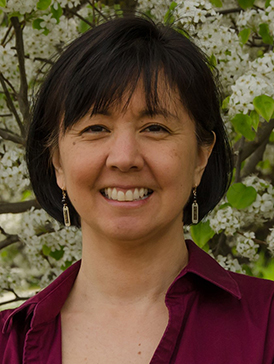 |
Dr. Lisa A. Miller is a Professor in the Department of Anatomy, Physiology & Cell Biology at the UC Davis School of Veterinary Medicine. Her research focuses on the impact of environmental inhalation exposures on pulmonary and immune system development during early life using small and large animal models and novel cell culture approaches. Dr. Miller received her PhD in Comparative Pathology from UC Davis and completed a postdoctoral fellowship in immunology at Stanford University. She is the Associate Director of Research, Cardiorespiratory Diseases Unit Leader, and Inhalation Exposure Core Leader at the California National Primate Research Center, one of seven National Primate Research Centers supported by the NIH. Dr. Miller has been an appointed member of the Scientific Review Panel on Toxic Air Contaminants for the California Environmental Protection Agency and NIH Lung Cellular, Molecular, and Immunobiology Study Section; she continues to review grants for the NIH and the American Lung Association. Dr. Miller has authored over 90 articles and book chapters in respiratory immunology, is an Editorial Board member for Toxicological Sciences, and is an Associate Editor for Frontiers in Allergy. Dr. Miller has been a member of SOT since 2015 and most recently served on the Mentoring Committee for the Inhalation and Respiratory Specialty Section. Global news media, including the British Broadcasting Corporation (BBC), Australian Broadcasting Corporation (ABC), and Reuters, have highlighted Dr. Miller’s work on California wildfire smoke exposure in young rhesus monkeys. In 2020, she was honored as an American Association for the Advancement of Science Fellow for distinguished contributions to understanding the health effects of air pollution and environmentally induced lung injuries.
Patricia Silveyra, Vice President-Elect
 |
Dr. Patricia Silveyra is a Professor and Chair of the Department of Environmental and Occupational Health at Indiana University School of Public Health Bloomington. She earned her bachelor’s and master’s degrees in molecular biology and biotechnology and her PhD in Biochemistry from the University of Buenos Aires, Argentina. She did her postdoctoral training at Penn State College of Medicine. In 2013, she established her independent research program at Penn State. Between 2018 and 2020, she led the Biobehavioral Laboratory at the University of North Carolina at Chapel Hill, and in 2021, she joined Indiana University School of Public Health Bloomington. Her research focuses on the study of sex differences and the role of sex hormones and their receptors in mechanisms of lung inflammation triggered by environmental exposures. Dr. Silveyra has served on the Editorial Board of the American Journal of Physiology-Lung Cellular and Molecular Physiology, on the Board of directors of the Society for Advancement of Chicanos/Hispanics and Native Americans in Science (SACNAS) and Graduate Women in Science (GWIS), and on the NIH Scientific Advisory Committee on Alternative Toxicological Methods (SACATM). She has authored/co-authored 86 publications, including peer-reviewed articles and/or book chapters. She has been a SOT, Hispanic Organization of Toxicologists Special Interest Group, and IRSS member since 2017 and has served as IRSS Councilor from 2022 to 2024.
Elizabeth Corteselli, Secretary
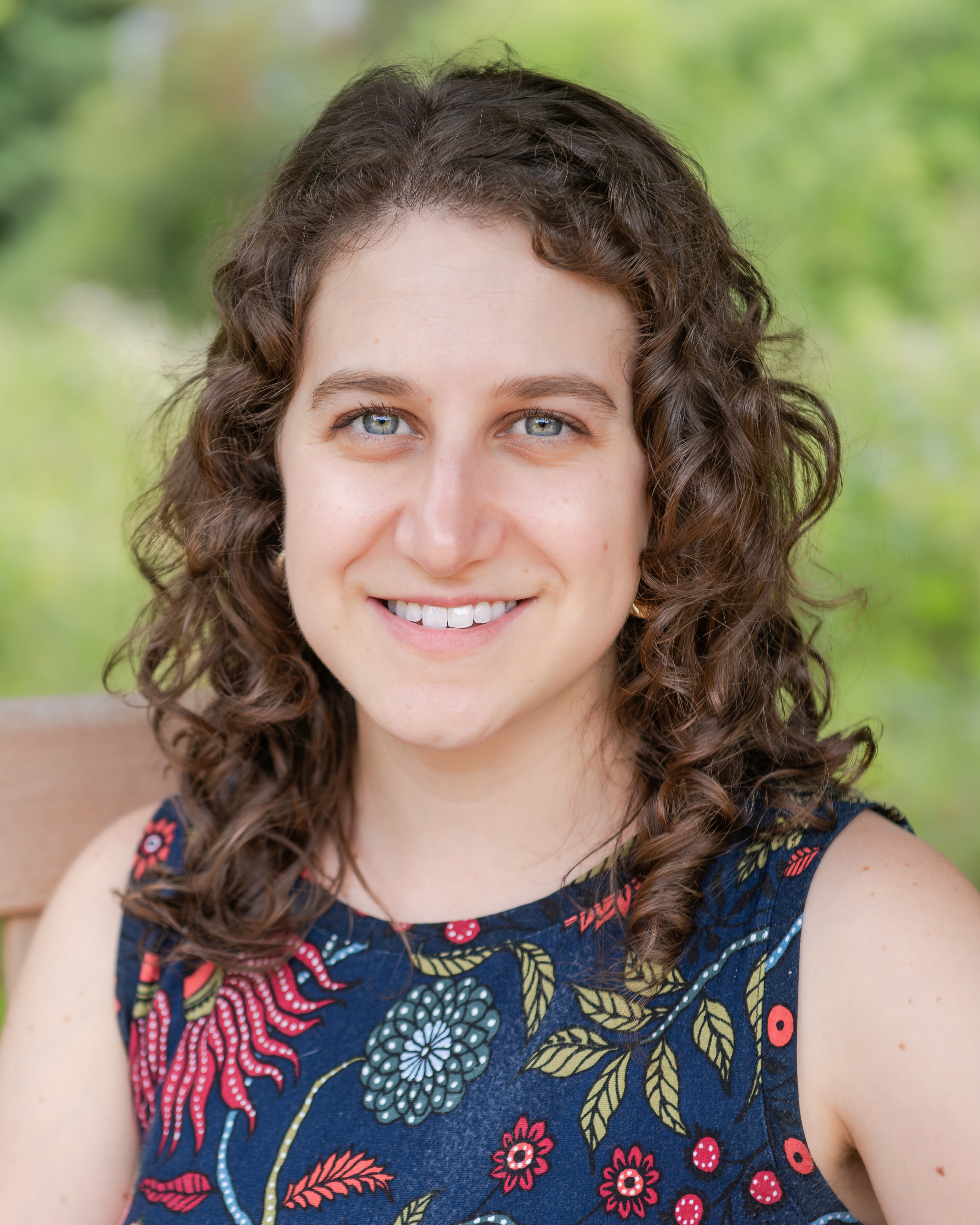 |
Dr. Corteselli is an Assistant Professor in the Department of Pediatrics and Center for Environmental Medicine, Asthma, and Lung Biology at the University of North Carolina at Chapel Hill. Her research investigates the mechanisms by which air pollutants cause airway epithelial cell injury, with a focus on perturbations in redox signaling and protein oxidation. She is also interested in the role of environmental exposures in the initiation and progression of Idiopathic Pulmonary Fibrosis (IPF). Her laboratory employs advanced in vitro models, such as organoid cultures, and primary human samples, including blood, bronchoalveolar lavage, induced sputum, nasal epithelial lining fluid, to investigate these areas. Dr. Corteselli received her doctorate from UNC Chapel Hill, where she studied how supplementation with omega-3 fatty acids mediates oxidative responses of airway epithelial cells when exposed to ozone. Continuing her interest in lung injury and redox signaling, she went on to complete a postdoctoral fellowship at the University of Vermont, where she investigated oxidative post-translational modifications to proteins in the context of IPF. Dr. Corteselli has published 16 peer-reviewed articles, including first author manuscripts in Nature Communications, Antioxidants, Environmental Research, and American Journal of Respiratory Cell and Molecular Biology. She has been a member of the Society of Toxicology since graduate school, and was awarded the Mary Amdur Award (IRSS), Murphy Travel Award (Mechanisms SS), Clinical and Translational SS Travel Award, and First Place Poster Award at the North Carolina SOT meeting. Additionally, she served as IRSS Graduate Student Representative from 2018 – 2020. She is currently involved in SOT and looks forward to helping serve IRSS in the future!
Pooja Singh, Treasurer
 |
Dr. Singh is an Instructor in the Division of Pulmonary, Allergy, and Critical Care Medicine at the University of Alabama at Birmingham (UAB). Her research focuses on how environmental pollutants contribute to lung injury and mucus accumulation in respiratory diseases. Dr. Singh is currently investigating the role of heavy metals in the development of small airway diseases. Her work aims to understand the mechanisms by which airborne particles like carbon and heavy metals, as well as bacterial exposures, can lead to lung injury. Dr. Singh received her doctorate from the University of Delhi, India in 2017, where she began her research on environmental exposures and respiratory diseases, specifically looking at host-pathogen interactions. Dr. Singh joined PHRI, Rutgers University in New Jersey, for her postdoctoral fellowships in 2017. Using animal (rabbit) model, she investigated lung injury by concentrating on cellular mechanisms such as autophagy and innate immune response, as well as tools like mRNA-FISH to help understand host-pathogen interactions. In 2020, she became a postdoctoral trainee at UAB, where she studied on the impact of environmental contaminants (such as PM2.5 and heavy metals) in chronic lung injury under the wings of NIEHS-Superfund Research Center. In 2022 Dr. Singh was appointed as Instructor. She has authored 25 peer-reviewed articles that have published in esteemed journals such as Nature, Journal of Clinical Investigation Insight, Microbial Pathogenesis, and American Journal of Respiratory and Critical Care Medicine. She has been a member of the Society of Toxicology (SOT) since 2020. At UAB she is affiliated to the NIEHS- Superfund Research Program (SRP). She organized an UAB-SRP trainee platform to facilitate communication among postdoctoral fellows.
Laura Van Winkle, President
 |
Dr. Laura S Van Winkle is a Professor of Respiratory Toxicology in the School of Veterinary Medicine Department of Anatomy, Physiology and Cell Biology at UC Davis. She received a BS with honors from UC Santa Barbara in Pharmacology and worked in the biotech sector for several years before earning her Ph.D. in Pharmacology and Toxicology from UC Davis. Following completion of her American Lung Association Research Training Fellowship, she joined the faculty at UC Davis in 1997. Her laboratory is at the Center for Health and the Environment where she is the Director of the Cellular and Molecular Imaging Core and Associate Director of the Center. She is a Diplomate of the American Board of Toxicology (DABT) and is a current member of the American Thoracic Society (ATS) Environmental Occupational and Public Health planning committee. She has published over 95 research articles in the fields of inhalation toxicology, developmental lung biology, chemical bioactivation, and lung injury and repair. Her research has focused on the interaction of environmental pollutants and specific lung regions, such as the distal conducting airway epithelium of the lung, and how that contributes to lung remodeling across the lifespan. Currently, she is the Chair of the UC Davis Graduate Group in Pharmacology and Toxicology and Director of the UC Davis NIEHS T32 for Advanced Training in Environmental Health Sciences. Her research lab has mentored over 115 diverse undergraduate and graduate students in STEM. She has served on many NIH Study Sections, including SIEE as a standing member, and as an Associate Editor for the SOT society journal Toxicological Sciences. She was the recipient of the SOT Inhalation and Respiratory Specialty Section Young Investigator Award and the Women in Toxicology Mentoring Award and has previously served IRSS as a councilor and as secretary/treasurer. She has been a full member of SOT since 1998.
Salik Hussain, Councilor
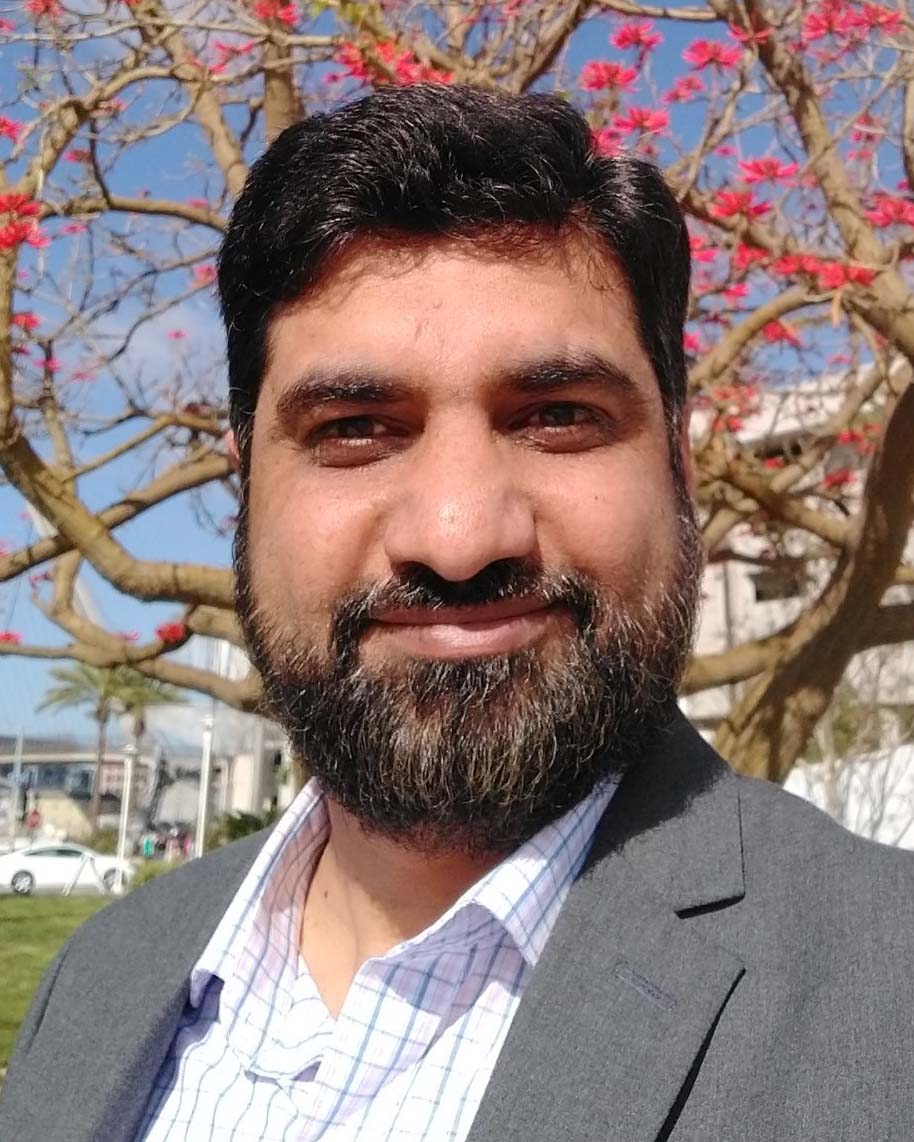 |
Dr. Salik Hussain is currently working as an Associate Professor in the Departments of Physiology, Pharmacology and Toxicology at West Virginia University. Dr. Hussain’s research focuses on elaborating the pulmonary health effects of environmental and occupational toxicants using rodent inhalation exposures, in vitro aerosol exposures and human/animal cell-derived organoids. Dr. Hussain also serves as the executive committee member for the Center for Inhalation Toxicology (iTOX) at West Virginia University. Dr. Hussain received his European Doctorate in Toxicology from University Paris Diderot, Paris, France in 2010 and was a postdoctoral fellow at the National Institute of Environmental Health Sciences (NIEHS) from 2011-2017. Dr. Hussain serves as an Academic Editor for the journal PLOS One, Review Editor for Frontiers in Immunology and Frontiers in Toxicology and an editorial board member for and editorial board member for Particle and Fibre Toxicology, NanoImpact, and Advances in Redox Research. He is the author/co-author of 55 peer-reviewed articles and/or book chapters. He has delivered multiple invited talks at international conferences including ATS and SOT annual meetings. His research work has won multiple awards from SOT including Outstanding Postdoctoral Achievements Award and Best Publication of the Year Award. He has been a member of the SOT since 2013 and has served the SOT in the following capacities: elected councilor (NAMSS), Vice President-elect (NAMSS), President (NAMSS), Past President (NAMSS), and program committee member for NAMSS (formerly Nanotoxicology Specialty Section) and poster session chair during annual meetings.
Emma Karey, Councilor
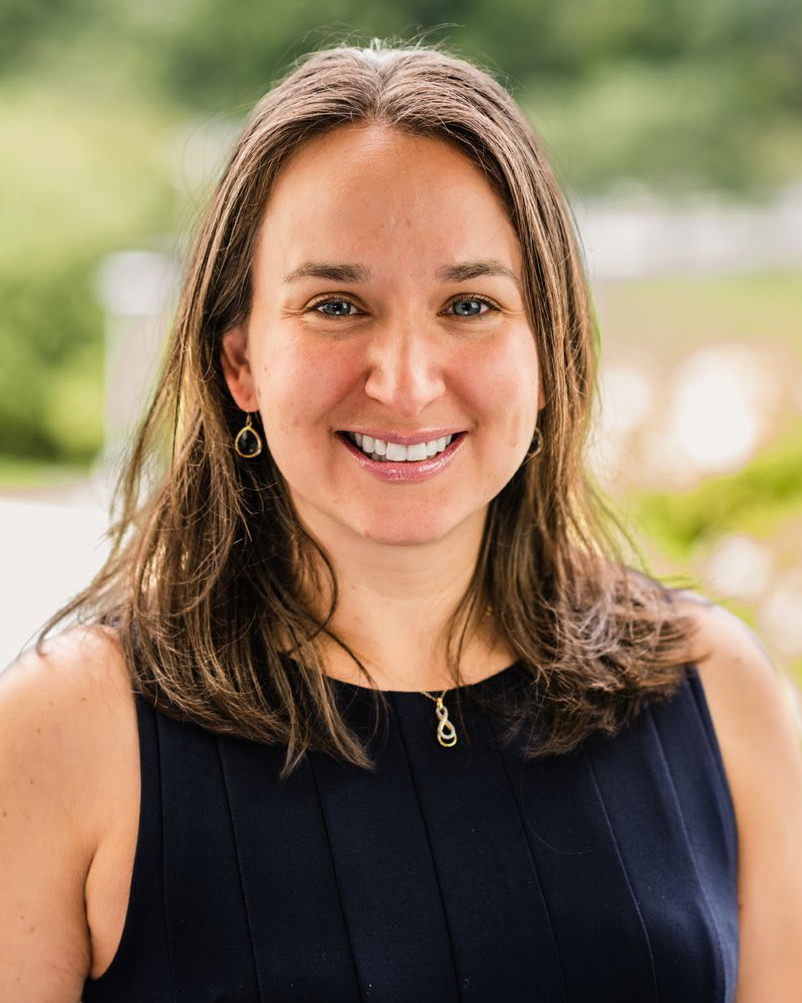 |
Dr. Emma Karey obtained her doctorate in Pharmacology and Toxicology from the University of California at Davis in 2018, where she studied the effects of environmental tobacco smoke on the autonomic mechanisms underlying cardiovascular dysfunction. She went on to complete a postdoc in the Department of Environmental Medicine at NYU Langone, where she characterized novel respiratory risks associated with alternative tobacco products, including electronic cigarettes and hookah water pipes. During her academic tenure, Dr. Karey was supported by three NIH Training Grants, served as a subject matter expert for multiple webinars, published over a dozen papers, and received three SOT postdoctoral awards (Women in Toxicology, RSE-SS and ELFSI-SS). In 2022, Dr. Karey joined AstraZeneca, where she supports derisking of molecules intended to treat respiratory and autoimmune indications. Dr. Karey has been an active member of SOT for more than a decade and recently completed her term as the postdoctoral representative for IRSS (2022-2024). Dr. Karey really enjoys being a member of IRSS’ vibrant and dynamic membership and hopes to continue supporting and contributing to their mission by serving as a junior counselor on the executive committee!
Colette Miller, Junior Councilor
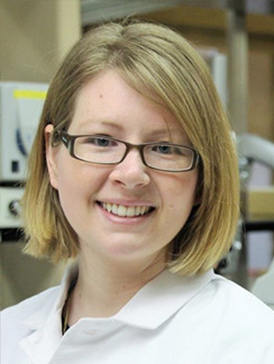 |
Dr. Colette Miller is a Biologist/Principal Investigator in the Cardiopulmonary Immunotoxicology Branch at the US EPA, where she studies how air pollutant exposures impact maternal, paternal, and intergenerational health outcomes. She received a doctorate in Nutrition from the University of Georgia in 2014 and was a postdoctoral scholar at the US EPA from 2015–2020. She has authored/co-authored 34 peer-reviewed articles and has received numerous research awards from SOT and other scientific societies. Dr. Miller has been a member of SOT since 2015 and was the IRSS postdoctoral representative from 2019–2020.
Alexandra Noël, Junior Councilor
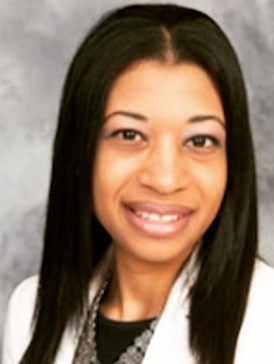 |
Dr. Alexandra Noël is an Associate Professor in the Department of Comparative Biomedical Sciences in the School of Veterinary Medicine at Louisiana State University (LSU). She received her bachelor’s degree in biomedical sciences, her master’s in occupational and environmental health, as well as her PhD in public health, with a specialization in toxicology and risk assessment, all from the Faculty of Medicine of the University of Montreal (Quebec, Canada). Her PhD work in nanotoxicology focused on pulmonary effects induced by inhaled TiO2 nanoparticles. She did her postdoctoral training at LSU from 2013 to 2017 on pulmonary responses induced by in utero exposures to inhaled environmental pollutants. Dr. Noël’s laboratory conducts inhalation toxicology studies on cardio-pulmonary effects of in utero and adult exposures to cigarette second-hand smoke, electronic cigarette aerosols, and ultrafine particles. These studies investigate the fundamental mechanisms at the epigenetic, molecular, and cellular levels that underlie the developmental origins of health and disease, with respect to respiratory effects caused by distinct emerging inhaled environmental pollutants. Dr. Noël’s laboratory is presently funded by the NIEHS and the NHLBI to conduct research on electronic-cigarette aerosols and cardio- pulmonary toxicity in vitro and in vivo. In addition, Dr. Noël is the Manager of the LSU Inhalation Research Facility and the leader of the Inhalation Toxicology Core of the LSU Superfund Research Program. Her publication record includes 36 peer- reviewed scientific articles that generated over 540 citations. Further, Dr. Noël is the co-Chair of the Membership Committee (2022-2024) of the American Thoracic Society (ATS), and a member of the NIH Advisory Committee on Research on Women’s Health (2022–2026). She has been a member of SOT and the IRSS since 2011 and served SOT in the following capacities: (1) She was the 2015–2016 postdoctoral representative for the SOT South Central Chapter. (2) She was a chairperson for Respiratory Toxicology poster sessions, sponsored by the IRSS at the 2017 and 2019 Annual Meetings. (3) She was a chairperson for workshops and symposiums, sponsored by the IRSS, at the 2019, 2022, and 2024 Annual Meetings. (4) She was the 2017–2019 Councilor for the SOT South Central Chapter. (5) She was President of the SOT South Central Chapter (2021–2022). (6) Since 2018, she has been a mentor (peer or host) for the CDI Undergraduate Diversity Program and gave the 2022 and 2023 Undergraduate Diversity Program Introduction to Toxicology presentation at those SOT Annual Meetings. (7) She is also a current member of the SOT Education and Career Development Committee (ECDC) (2021–2024).
Eva Vitucci, Postdoctoral Representative
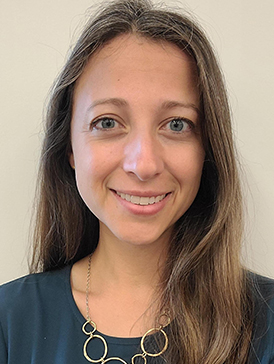 |
Dr. Eva Vitucci is a postdoctoral fellow at Texas A&M University where she investigates the inhalation hazard and exposure risk of volatile organic compounds using a combination of analytical and in vitro approaches. She received her doctorate in Toxicology from the University of North Carolina, Chapel Hill in 2022. Dr. Vitucci is a recipient of the NIEHS Ruth L. Kirschstein Predoctoral Fellowship (F31), the author/co-author of 3 publications, the recipient of 12 SOT affiliated graduate/postdoctoral awards and is consistently engaged in mentoring activities for students across all ages. Dr. Vitucci has been a member of SOT and various SOT Specialty Sections and Special Interest Groups since 2018. She has previously served as a mentor and panelist for the SOT Undergraduate Development Program. She recently served as the Postdoctoral Representative for the Lone Star SOT (LSSOT) Regional Chapter where she actively helped plan the Annual LSSOT Meeting.
Rachel Sun, Graduate Student Representative
 |
Rachel Sun is a dual degree first-year PhD graduate student and third-year PharmD candidate at Rutgers University’s Joint Graduate Program in Toxicology and Ernest Mario School of Pharmacy, respectively. In the labs of Dr. Andrew Gow and Dr. Debra Laskin, Ms. Sun researches the cellular mechanisms and immunometabolism of ozone-induced acute lung injury in the context of the development and use of mRNA technologies. She has been a member of SOT and has participated in the annual conferences and IRSS mentoring events since 2022. As a graduate student, Ms. Sun contributed to student mentoring at Rutgers’ high school education program (THED), the pharmacy school, and the NJ Governor’s STEM Scholars Program. This included teaching laboratory techniques, organizing events on topics such as crafting literature reviews and leading a group of students to present posters at national conferences. Through the IRSS graduate student representative position, Rachel plans to promote IRSS events, increase networking opportunities, and organize outreach activities to increase graduate student involvement in the IRSS. She is enthusiastic about the opportunity to serve the IRSS community as a Graduate Student Representative with the IRSS Executive Committee.

